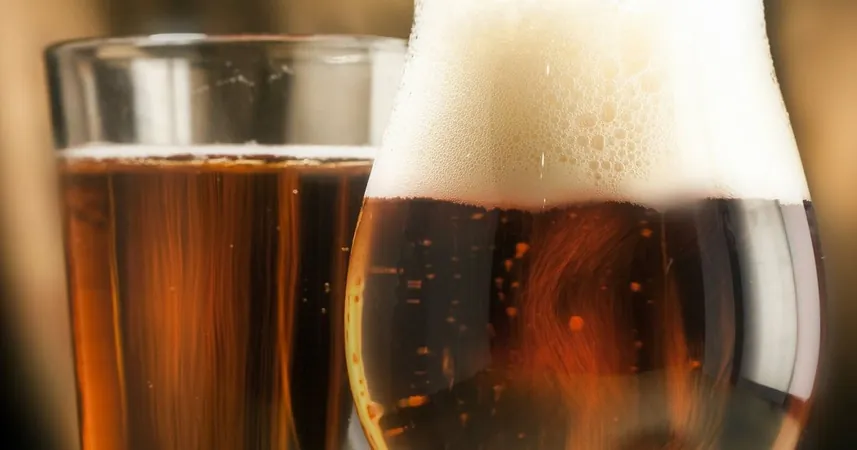
Beer Drinkers Beware: Exploring the Headlines on Diet Quality and Alcohol Choices
2024-11-25
Author: Ling
Introduction
In recent weeks, a study has gained significant attention online, claiming that beer drinkers possess poorer diet quality, lower activity levels, and a higher likelihood of smoking compared to those who favor wine or liquor. But before you start doubting your favorite brew, it’s important to dig deeper into the findings and understand the nuances that the headlines missed.
Study Overview
The research in question utilized data from 1,917 current drinkers participating in the U.S. National Health and Nutrition Examination Survey (NHANES). These participants provided information about their dietary habits over two specific days. Based on this limited data, researchers categorized participants into different drinking groups: 'beer-only,' 'wine-only,' 'liquor-only,' and 'combination.' Subsequently, they evaluated the average diet quality scores of each group using the Healthy Eating Index (HEI), a scoring system aligned with the Dietary Guidelines for Americans. The HEI scores range from 0 to 100, with 100 representing optimal adherence to dietary recommendations.
Findings
The striking revelation from this study was the average HEI scores: beer drinkers recorded an average of 49, wine drinkers 55, while those consuming liquor or a combination of alcohol types scored around 53. While these numbers suggest a deficiency in all groups, it’s crucial to recognize that even the overall average HEI score for adults in NHANES, which sits between 57 to 61 depending on age, isn’t stellar.
Demographics
An important insight into the demographics revealed that beer drinkers tended to be predominantly male, younger, and from lower-income backgrounds, while wine drinkers were generally female, older, higher-income, and predominantly white. This demographic difference is significant, as it raises questions about socioeconomic status and its impact on dietary choices and overall health behaviors.
Recommendations
Interestingly, one of the researchers proposed that healthcare professionals should inquire about patients’ alcohol preferences and encourage beer drinkers to increase their exercise and intake of fruits and vegetables. While these recommendations appear well-intentioned, it’s vital to understand that addressing diet quality and active lifestyles may require more tailored approaches rather than generic advice. The socioeconomic factors influencing dietary choices cannot be overlooked.
Consumption Environment
Moreover, the research suggests that the environments in which individuals consume alcohol can play a role in diet quality. Beer, often associated with bar settings or casual dining experiences, may be accompanied by processed or unhealthy food options. However, it’s worth noting that many modern establishments, including artisanal pizzerias and farm-to-table restaurants, offer a selection of craft beers alongside healthy dining choices.
Conclusion
In conclusion, while the study highlights trends associated with alcohol consumption and diet quality, it is essential to remember that such findings represent correlations rather than direct causations. The implications of these associations can vary greatly on an individual level. Reflect on your own alcohol and food consumption patterns: are there adjustments that might benefit your health? It’s crucial to take a mindful and informed approach rather than reacting impulsively to trending headlines. So, before tossing out your beer in despair, consider all the factors at play and make choices that truly reflect your lifestyle and health goals.



 Brasil (PT)
Brasil (PT)
 Canada (EN)
Canada (EN)
 Chile (ES)
Chile (ES)
 España (ES)
España (ES)
 France (FR)
France (FR)
 Hong Kong (EN)
Hong Kong (EN)
 Italia (IT)
Italia (IT)
 日本 (JA)
日本 (JA)
 Magyarország (HU)
Magyarország (HU)
 Norge (NO)
Norge (NO)
 Polska (PL)
Polska (PL)
 Schweiz (DE)
Schweiz (DE)
 Singapore (EN)
Singapore (EN)
 Sverige (SV)
Sverige (SV)
 Suomi (FI)
Suomi (FI)
 Türkiye (TR)
Türkiye (TR)